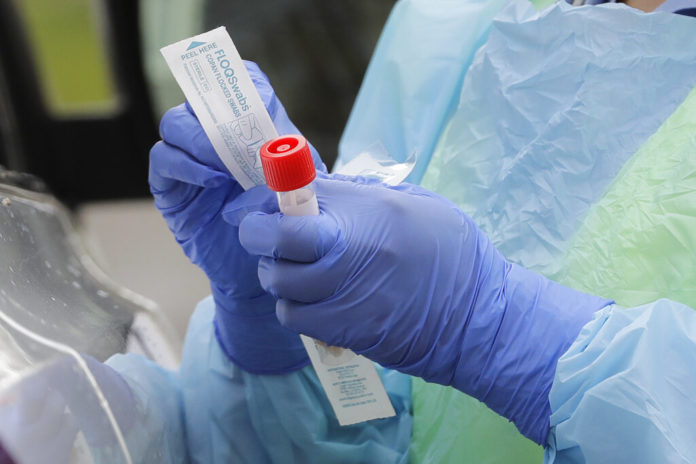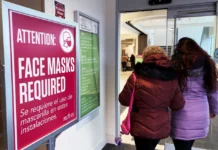Arizona reached a grim milestone of more than 5,000 known coronavirus deaths Saturday, just as the state’s largest public university announced a staggering number of cases.
The state Department of Health Services reported 629 additional COVID-19 cases and 29 more deaths. With those figures, Arizona has now seen in total 201,287 cases and 5,007 fatalities.
The number of hospitalizations and ventilators in use continued to make incremental decreases.
Meanwhile, Arizona State University President Michael Crow announced in an online post Friday night that more than 450 students have tested positive for the coronavirus.
According to Crow, there are 452 confirmed positive cases and more than half involve students who live off campus in metro Phoenix. Crow says 205 students are currently in quarantine on the Tempe campus.
He also disclosed that 28 faculty members also tested positive for COVID-19.
University officials say contact tracing efforts have been underway.
On Tuesday, ASU had reported 161 current coronavirus cases among students and staff across the university’s four campuses. But Crow said the cases were expected because of broad testing. The school has collected samples from more than 37,000 students since Aug. 1.
ASU, which is the nation’s largest public university, opened its fall semester last week and currently has about 100,000 students and employees coming to its four metro Phoenix campuses on staggered days.
Crow said there would be penalties for students who ignore social distancing rules and boosted the university’s mask policy to require face coverings at all times on university property. Previously, masks were required indoors and outside when social distancing wasn’t possible. Now it’s a universal requirement, except while eating.
In general, the number of coronavirus infections is thought to be higher because many people have not been tested. Studies suggest people can be infected without feeling sick.
For most people, COVID-19 causes mild or moderate symptoms that clear up in a few weeks. But for some, especially older adults and people with existing health problems, it can cause more severe illness, including pneumonia and death.
Republished with the permission of the Associated Press.















